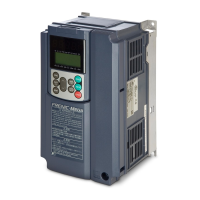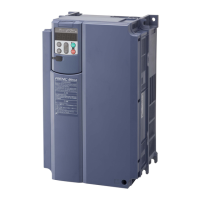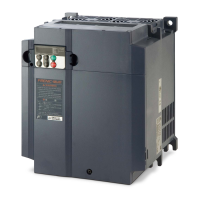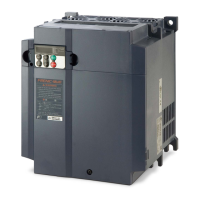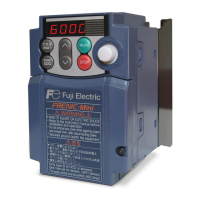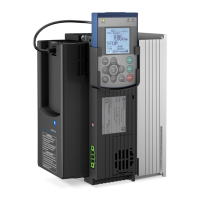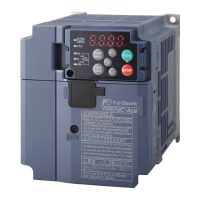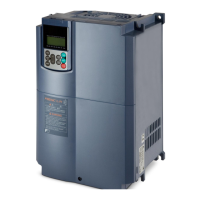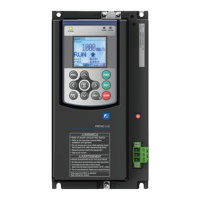5.3 Description of Function Codes 5.3.2 E codes (Extension terminal functions)
Table 5.3-9 Time T1 from “BATRY” ON to 73X ON
Time required for turning on the control power supply, switching to the power supply from the
battery, and then to turning on the charging resistor short circuit 73X
Time required from the occurrence of momentary power failure in the control power supply ON
status, switching to the power supply from the battery, and turning on of the short circuit 73X
for the charging resistor
(5) S-curve acceleration/deceleration becomes invalid.
(6) The speed at which operation is possible during battery operation is calculated based on the following formula.
Frequency command during battery operation
x Base frequency (F04) x K
Here,
Battery voltage: 24 VDC or higher (200V series)
48 VDC or higher (400V series)
Rated frequency: F04
Rated voltage: F05 (Motor rated voltage (V))
K: Safety factor (less than 1. Approx. 0.8)
Select torque bias 1, 2 -- “TB1”, “TB2” (Function code data = 61, 62)
The torque bias level can be selected from three types by combining the “TB1” and “TB2” signals, and is valid under
vector control with sensor.
( Function codes H154 to H162)
H155: Torque bias level 1
H156: Torque bias level 2
H157: Torque bias level 3
Hold torque bias -- “H-TB” (Function code data = 63)
Turning this terminal command ON enables a torque bias hold command. This command directs to preserve the
torque bias data supplied via an analog input.
( Function codes H154 to H162)
Check brake “BRKE” assignment (Function code data = 65)
If the status of the brake signal BRKS fails to agree with the status of the brake check signal BRKE during inverter
operation, the inverter enters an alarm stop state with Er6.
This signal is used as a feedback signal for the brake signal BRKS. When the mechanical brake does not operate,
it causes the inverter to trip to activate the mechanical brake. The response delay time for BRKS and BRKE can be
adjusted with H180: Brake response time.
( Function codes J68 to J96, H180)
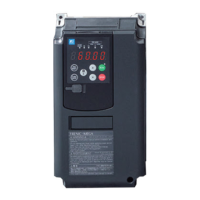
